Assistant Principal / Leader of Pedagogy
Mr Stephen Chapman
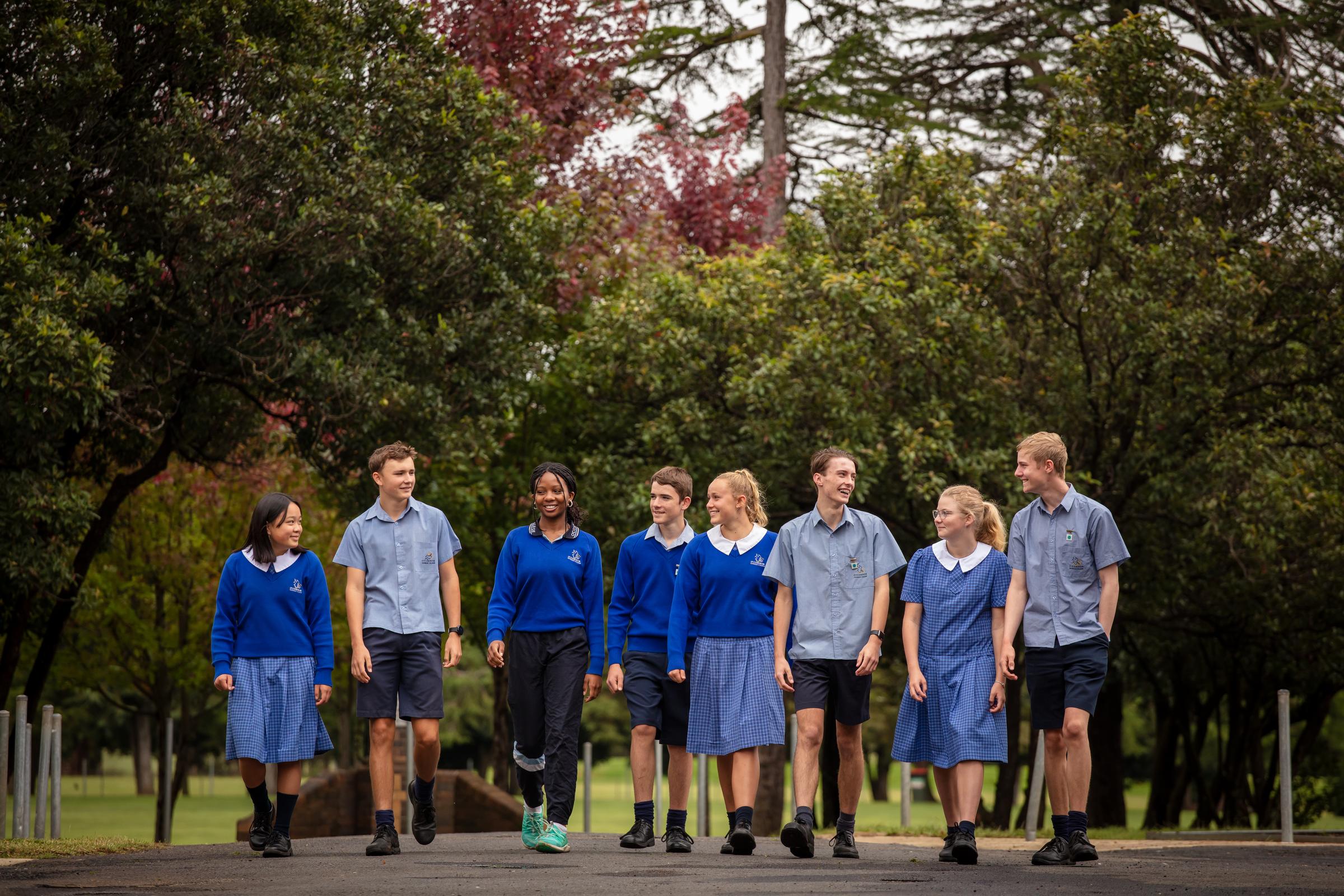
Assistant Principal / Leader of Pedagogy
Mr Stephen Chapman
Getting ready for Year 11 and Year 12 Exams
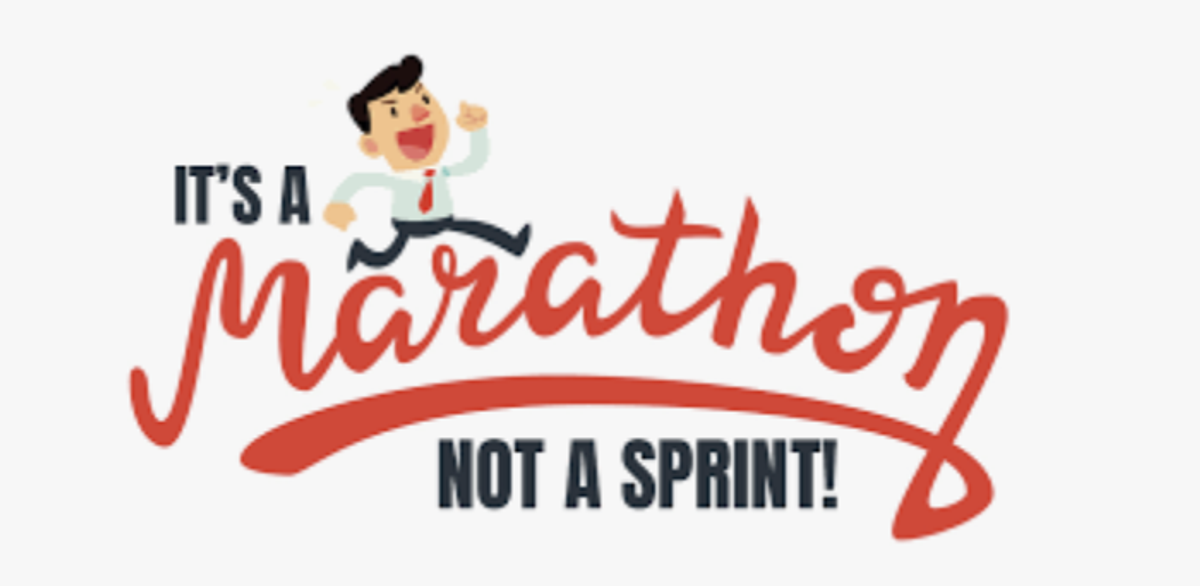

This issue, I’m writing to our Year 11 and 12 students and their parents/carers. The Year 12 students have just finished their two weeks of Trial HSC Exams and Year 11 are busily getting ready for their Year 11 Exams that take place in Week 9 this Term. In fact, the first exam is on Friday Week 8: Two weeks from today! Year 12 have their HSC exams to prepare for, too. So how do students prepare for exams like these? How can they take the pressure off? These questions are the focus of my article.
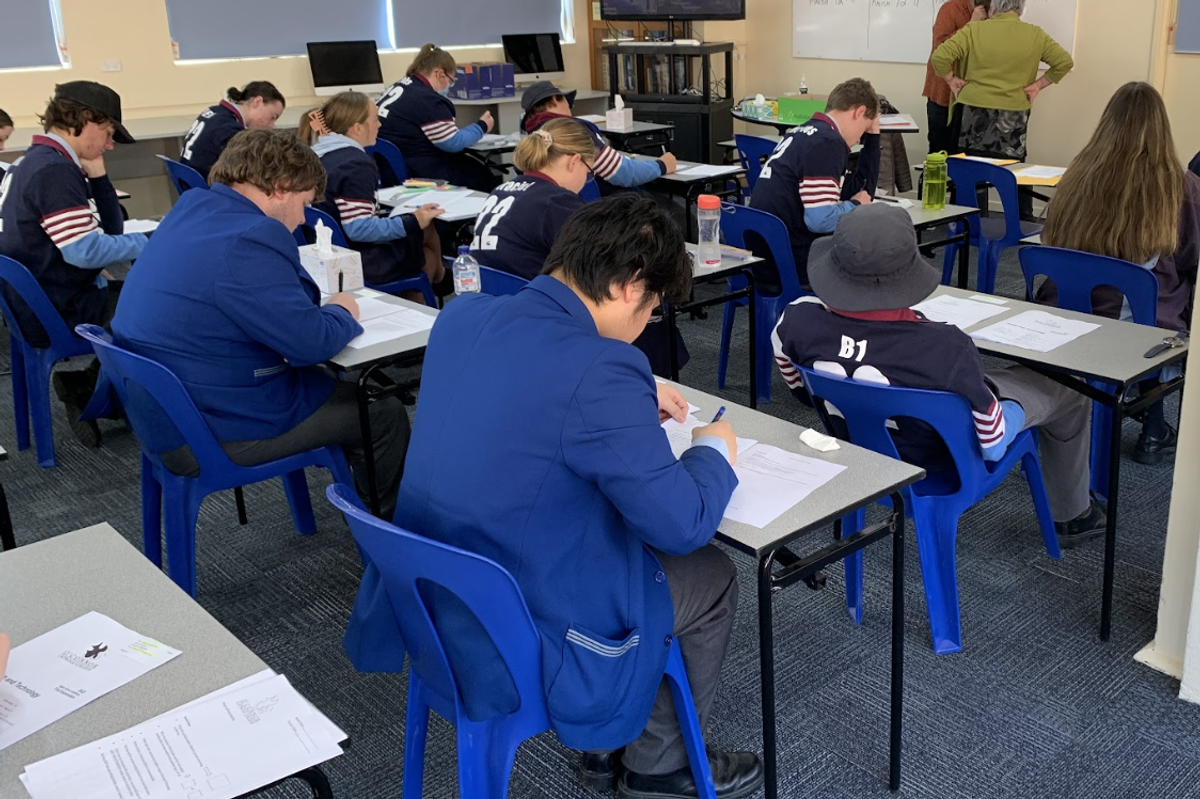

Year 12 have just finished sitting their Trial Exams. HSC next!
The answer is fairly simple. Preparation. That’s why the subtitle of my article is It’s a marathon, not a sprint. There are literally thousands of literary articles on this subject. See this screenshot for an example.
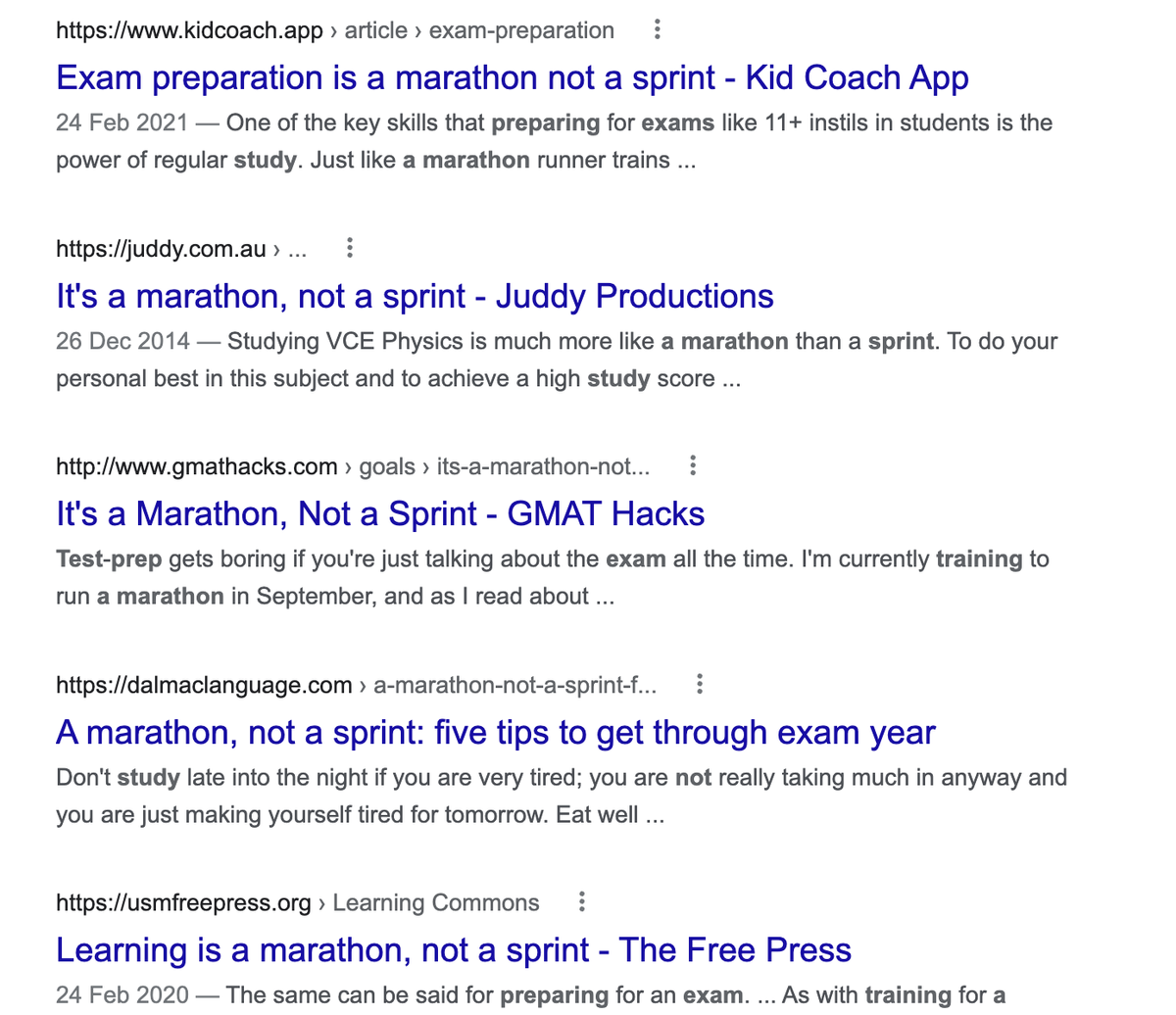

There are thousands of articles regarding how learning is a marathon, not a sprint
I don’t normally include sporting analogies in my articles, but I can’t resist today. It’s so true that to succeed in preparation for exams, students need to consistently work on their learning. “We have all seen the athlete who “takes it out fast” at the start of a long-distance race, only to step off the track before the race has been completed. Likewise, we have also seen the athlete who leaves his or her run too late and sprints to the finish line frantically to only make up one or two places in the middle of the pack.” (Juddy Productions, 2014, p.1)
It’s easy for us teachers to say that. But what does it look like? I covered some of these suggestions in my newsletter article from Term 2 this year called Mr Chapman's Top 10 tips for HSC success. Today, I’ll revisit some of these.
Practice HSC/Exam Questions
The questions in all these exams (Year 11 Exams, Year 12 Trial Exams and Year 12 HSC Exams) are similar in nature. Teachers and examiners don't pull weird questions out of anywhere. The best practice is to do HSC questions from past exams. Of course, make sure they cover content that you have done. Teachers can help you find suitable questions. I went through Miss Armfield's Year 11 Advanced English class yesterday and they were busy doing a practice question in exam booklets. Great practice!
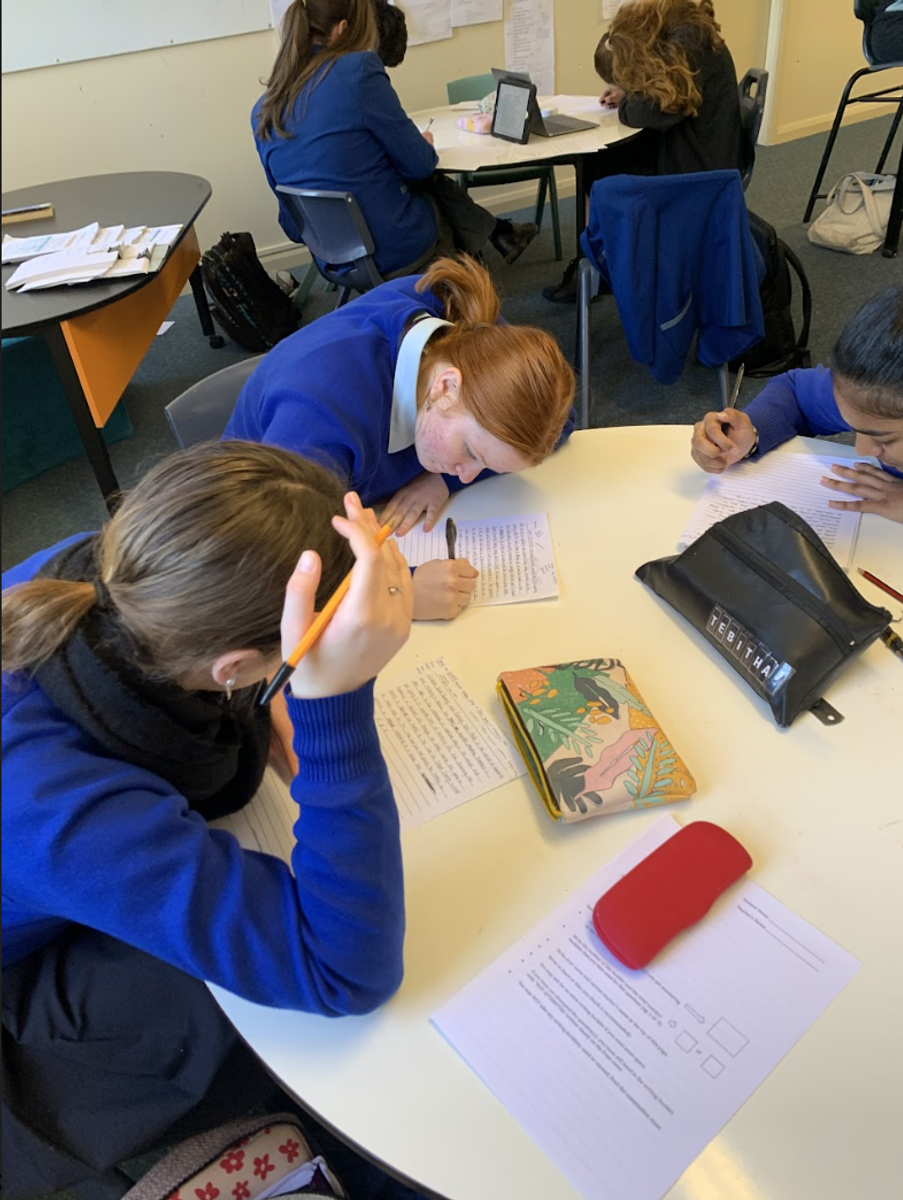

Year 11 completing a practice English Advanced exam question in exam booklets: Great practice!
Revise and study
Most students complete learning at home regarding the day-to-day lessons as they go. It’s important to also revise topics done already. When they do this, it works best if they produce a summary document that they can keep for future reference. Examples of this are Summary Sheets for each topic. These take many different forms. In Mr Woosters English Standard class, for example, they were yesterday busy unpacking a poem that they had studied and summarising the information onto a table. This gives them something to look through before the English exam in 2 weeks, and a resource for Year 12.
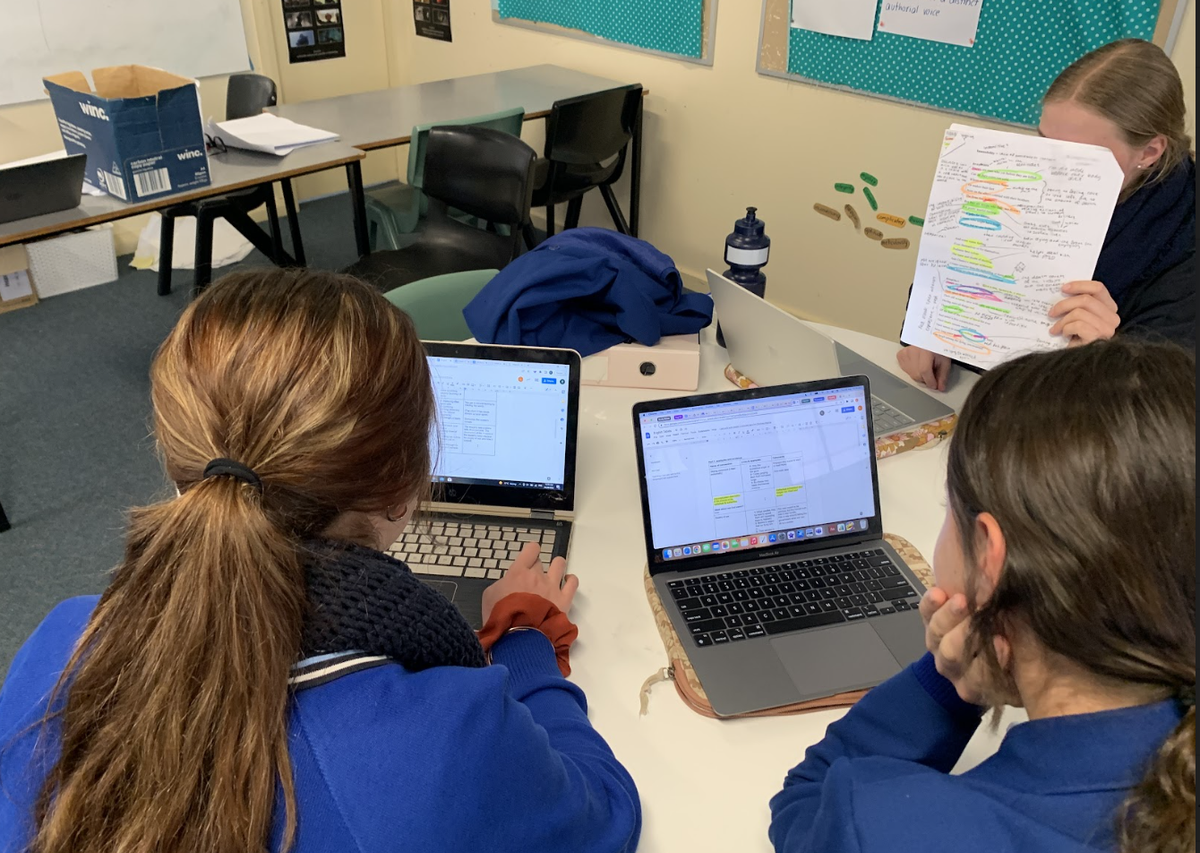

Year 11 completing an activity to unpack a set text (poem) into a summary table
These summary sheets can be online or on old-fashioned paper. The paper ones can be hung up on bedroom walls for constant reference. Here are some examples from Maths Standard 2.
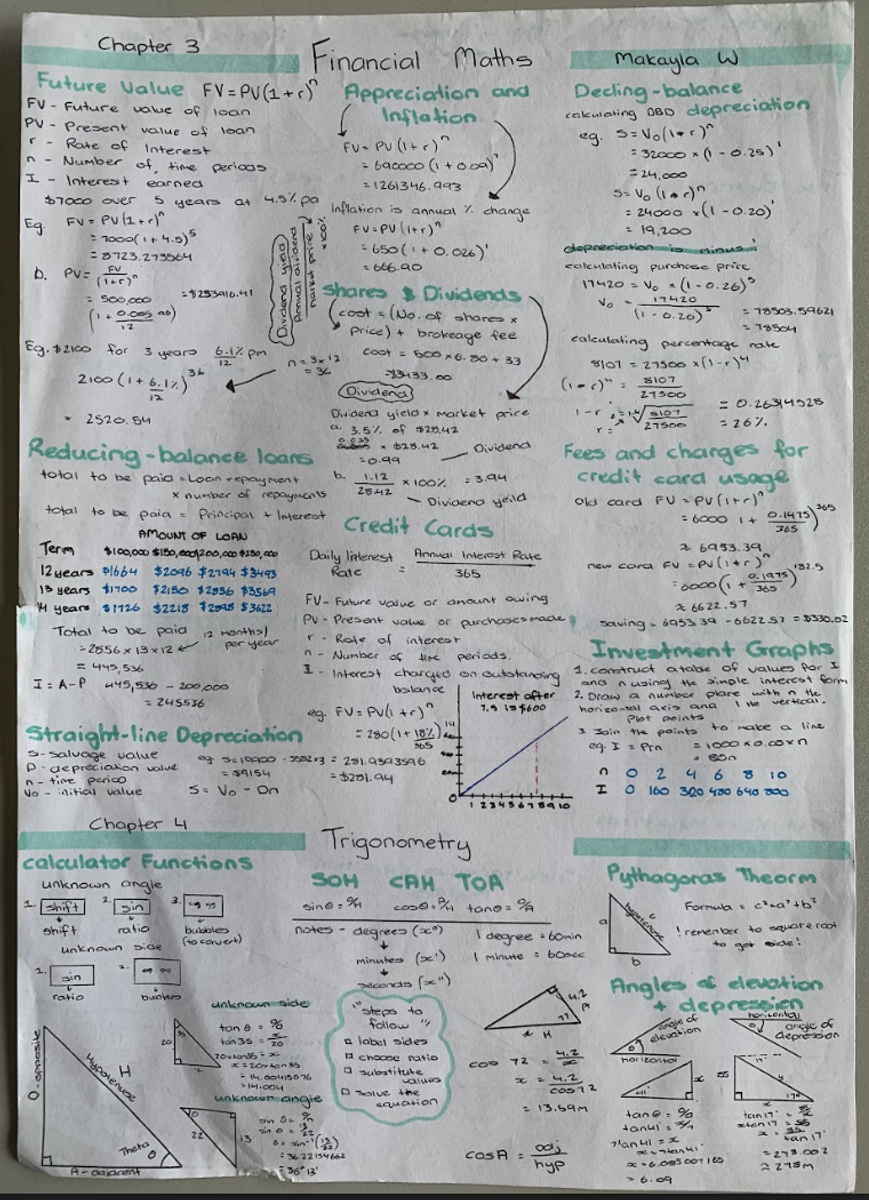
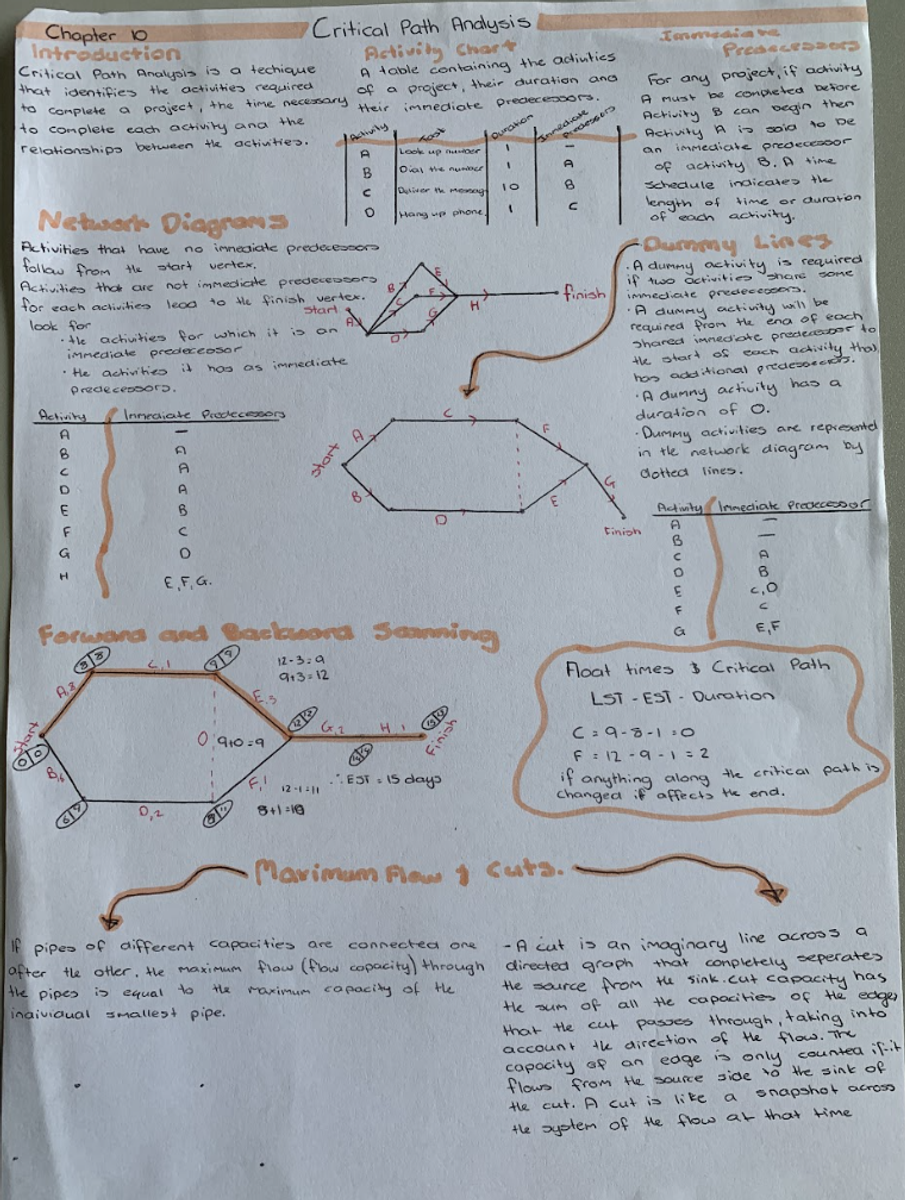
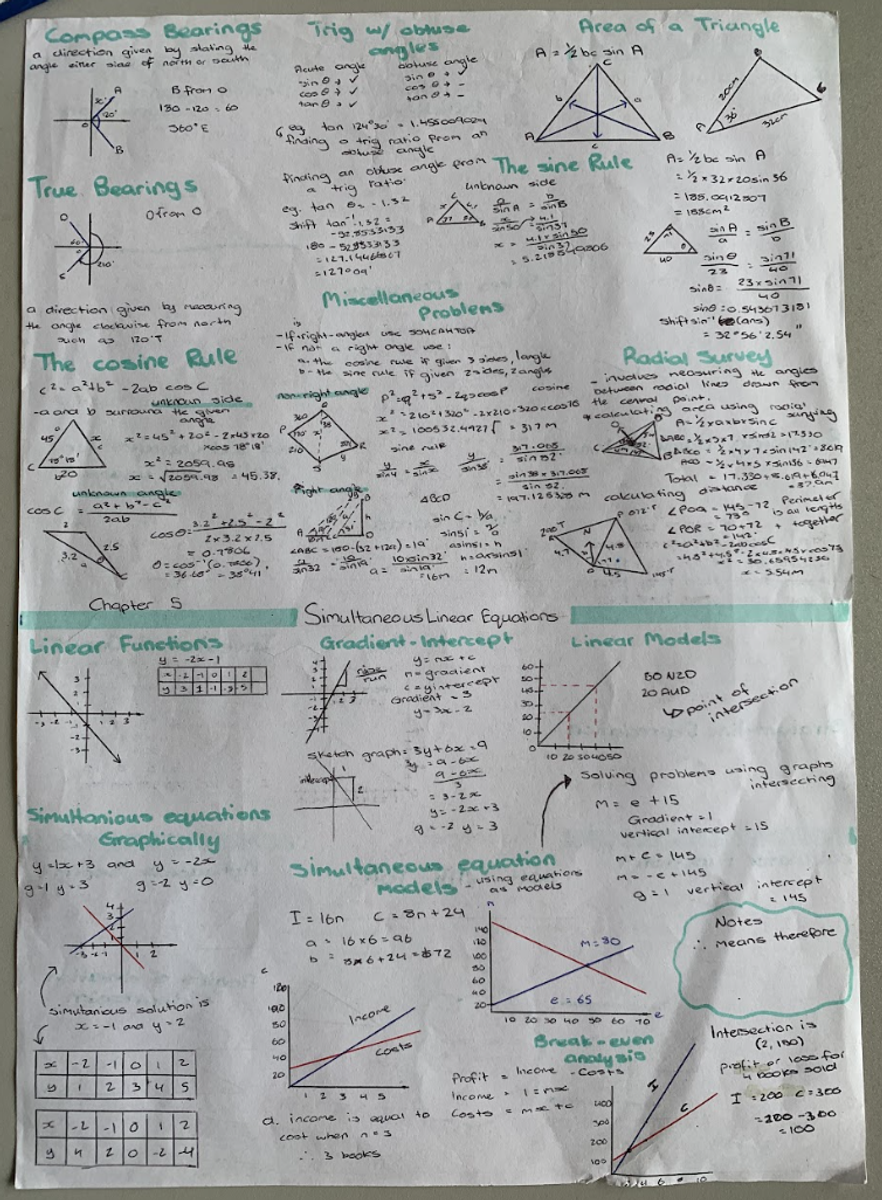



Summary sheets help students study later
Any effort now will help later
My next point is especially for Year 11 students, but everyone can apply this to other people and situations. Any effort you put into your learning and exam preparation will help in the short term, certainly, but it will also help you later. For our Year 11’s this means that learning topics will really help your understanding of Year 12 topics as they come up. The student's path along the learning continuum will be a smoother journey. In some subjects (eg. all maths courses) the content in Year 11 is directly assessed in the HSC.
It’s not just learning for the exam!
My final point is perhaps the most important. The topics in all of our subjects are not just designed to be tested at the end of the course. It’s not an endpoint. The syllabuses have been designed to help students learn about the real world in a meaningful way. For some, this learning will provide a sound grounding to go on to university studies, too. I’ll illustrate this point with my recent experience with my own son who is in Year 10. We have been busy studying the road rules as he has just turned 16 and wanted to get his Ls. I won't lie. The focus of our discussions was always the test. We practised the online questions many times. But he and I both knew: What he was learning was vital for his future safety as a driver, and for those around him. The learning was real and relevant. By the way, he passed his test yesterday, and he is so proud of himself: As he should be! I’m sure many of you at home can relate to this moment in your family's lives. Being parents of teenagers can be difficult so we need to celebrate the successes.
So, in conclusion, this is a busy time for our senior students. Exams are coming up fast for both Year 11 and Year 12. It’s important to keep a balance in your lives and maintain good mental health. One of the best ways to take the pressure off is to prepare for these exams. Keep building on your learning. Cramming for 24 hours will certainly not help your exam performance. Remember: In learning, success is likely if you run a marathon, not a sprint.
Mr Stephen Chapman


Assistant Principal - Leader of Pedagogy
Never stop learning; for when we stop learning, we stop growing - Jack Lewman
Reference
It’s a marathon, not a sprint, Juddy Productions. December 26, 2014. Retrieved from https://juddy.com.au/?p=186